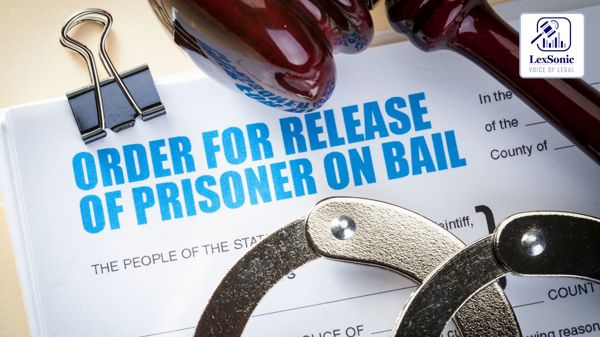Grant of Bail to Accused in NDPS Case Amidst Delay in Trial Process: Court's Observations.
28 November 2024
Bail and Antcipatory Bail >> Criminal Law
In a significant legal development in the matter of Kondiba Gunjal v/s The Union of India, Through Intelligence Officer, Directorate of Revenue Intelligence, Mumbai & Another, the Bombay High Court granted bail to the applicant, who was accused of being involved in the illegal drug trade under the Narcotic Drugs and Psychotropic Substances Act (NDPS Act). The accused, identified as Accused No. 2, was arrested in connection with a large-scale drug seizure, which involved the discovery of 191.60 kgs of heroin in a consignment at a customs clearance facility. The case, which has been pending for over three years, raises crucial issues surrounding the right to a speedy trial and the application of Section 37 of the NDPS Act.
Case Background:
The National Narcotics Control Bureau (NCB) filed a complaint against several individuals, including the applicant, Accused No. 2, after a raid on a consignment that was suspected to contain narcotic substances. The consignment, imported from Afghanistan under the bill of entry dated 1st August 2020, was cleared by Accused No. 1, who was the customs agent responsible for the clearance of the goods. During the raid at Navkar Corporation in Raigad, a large quantity of heroin was seized from the container.

The role of Accused No. 2 was revealed through the statement of Accused No. 1, who stated that Accused No. 2 had assisted in clearing the consignment. Additionally, mobile phone records and WhatsApp communications between the two accused further implicated Accused No. 2 in the case.
Despite these allegations, the applicant's defense centered on the claim that as a customs clearing agent, he had no knowledge of the illicit contents of the consignment. The applicant argued that the charges against him were primarily based on statements made under Section 67 of the NDPS Act, which he contended could not be used as confessions due to the legal protections surrounding such statements.
Legal Arguments:
The applicant's counsel highlighted that while the NCB’s complaint relied heavily on the statement under Section 67 of the NDPS Act, there was no substantial corroborative evidence to prove the applicant’s direct involvement in the drug trafficking operation. It was also argued that the applicant had already spent over three years in custody, with no significant progress in the trial. Despite the serious nature of the charge, the defense contended that the applicant was entitled to a fair and speedy trial as guaranteed by Article 21 of the Indian Constitution.
On the other hand, the prosecution maintained that the recovery of a commercial quantity of heroin and the applicant’s role in clearing the consignment warranted denial of bail. The prosecution cited the severity of the offense and the commercial quantity of drugs involved to argue that bail should not be granted.
Court’s Ruling:
After a detailed examination of the case, the court concluded that the applicant’s continued incarceration, without any substantial progress in the trial, violated his fundamental right to a speedy trial. In particular, the court noted that the applicant had been in custody since August 2021, and with 54 witnesses yet to be examined, there was little chance of a quick resolution to the trial.
The court also referred to several precedents where prolonged detention due to delays in trial had been ruled as unconstitutional. In particular, the Supreme Court’s decisions in Javed Gulam Nabi Shaikh v. State of Maharashtra and Satender Kumar Antil v. Central Bureau of Investigation were cited to emphasize the importance of expeditious trials, even in cases involving serious offenses like drug trafficking.
The court also acknowledged that the prosecution’s case against the applicant largely rested on statements made under Section 67 of the NDPS Act, which, according to established legal principles, could not be treated as confessions. Given the lack of corroborative evidence linking the applicant to the drugs found in the consignment, the court found that the statutory restrictions of Section 37 of the NDPS Act did not apply in this case.
Bail Conditions:
In light of the lengthy period of custody and the absence of any immediate prospects of trial conclusion, the court granted bail to the applicant. However, the release was contingent on strict conditions to ensure that the applicant would cooperate with the judicial process. These conditions included:
Furnishing a personal bond of Rs. 1 lakh along with two solvent sureties.
Not tampering with prosecution witnesses or attempting to influence the investigation.
Not leaving the country without prior permission from the court.
Depositing his passport with the trial court and attending proceedings regularly.
Conclusion:
The decision to grant bail to Accused No. 2 in this high-profile narcotics case underscores the critical importance of ensuring a timely trial. It reaffirms the principle that prolonged detention without the conclusion of a trial can infringe upon an accused person's constitutional rights, even in cases involving serious criminal offenses. This case serves as a reminder of the delicate balance courts must strike between the severity of the crime and the fundamental rights of the accused, particularly the right to a speedy trial.
Narcotic Drugs and Psychotropic Substances Act, 1985
